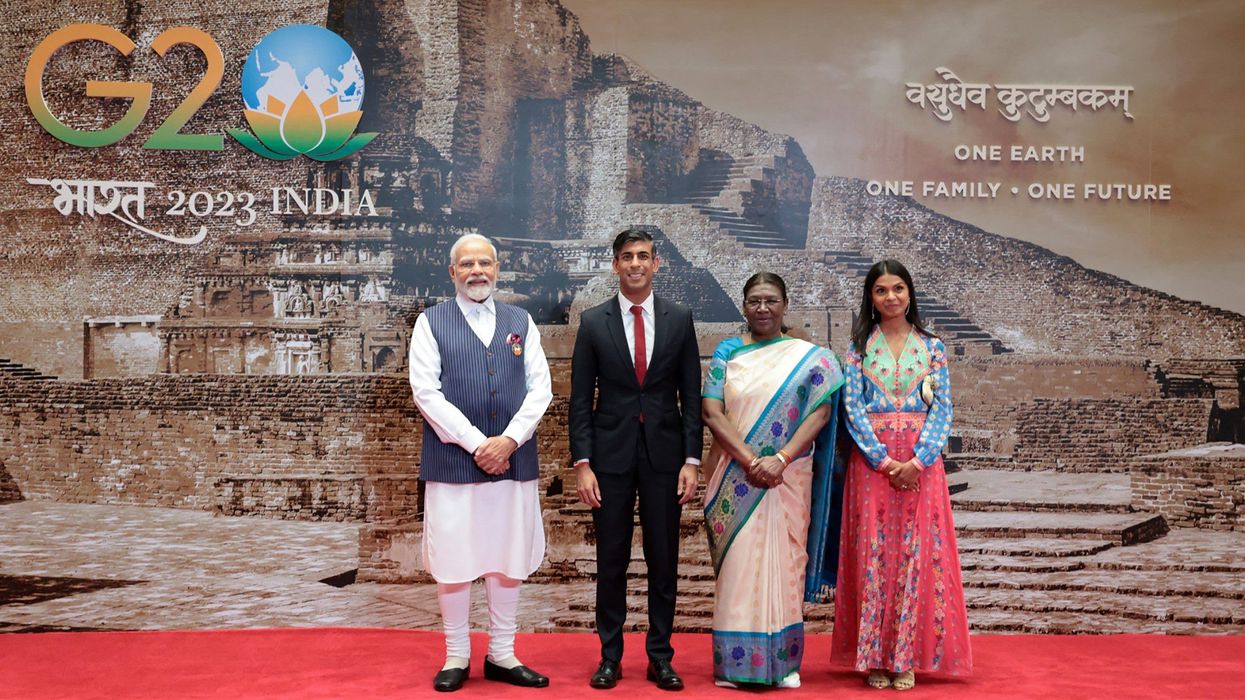THE G20 Summit in New Delhi has positioned India as a key player in the global arena, edging closer to becoming the 'leader of the Global South,' according to analysts.
The two-day summit, which concluded on Sunday (10), showcased India's leadership as it championed initiatives aimed at countering the ascendancy of its regional rival, China.
Observers have hailed the success of the summit as a pivotal moment for India's prime minister, Narendra Modi, both on the international and domestic fronts. This achievement comes at a crucial juncture, as Modi gears up for a general election in mid-2024.
Serving as the president of the G20, India assumed a prominent role in advocating for the concerns of developing nations adversely affected by the pandemic, mounting debt burdens, and growing challenges to food and energy security.
Having taken over the G20 presidency from Indonesia in December 2022, India had articulated its ambition to unite countries from the Global South.
Modi had emphasised the necessity for a 'mindset shift' within the group and said it “was especially needed in the context of mainstreaming the marginalised aspirations of developing countries, the Global South and Africa”.
A major step in this direction was the inclusion of the 55-member African Union (AU) into the bloc as a permanent member. Modi, in his address, highlighted the significance of the African Union's induction into the G20, emphasising its potential to fortify the group's influence and amplify the collective voice of the Global South.
With a combined Gross Domestic Product (GDP) nearing USD 3 trillion (£2.4tr) and a population of approximately 1.4 billion, the African Union's integration into the G20 holds substantial economic and demographic weight, according to Press Trust of India (PTI) reports.
This historic development marks the first expansion of the G20 since its establishment in 1999, following the Asian financial crisis.
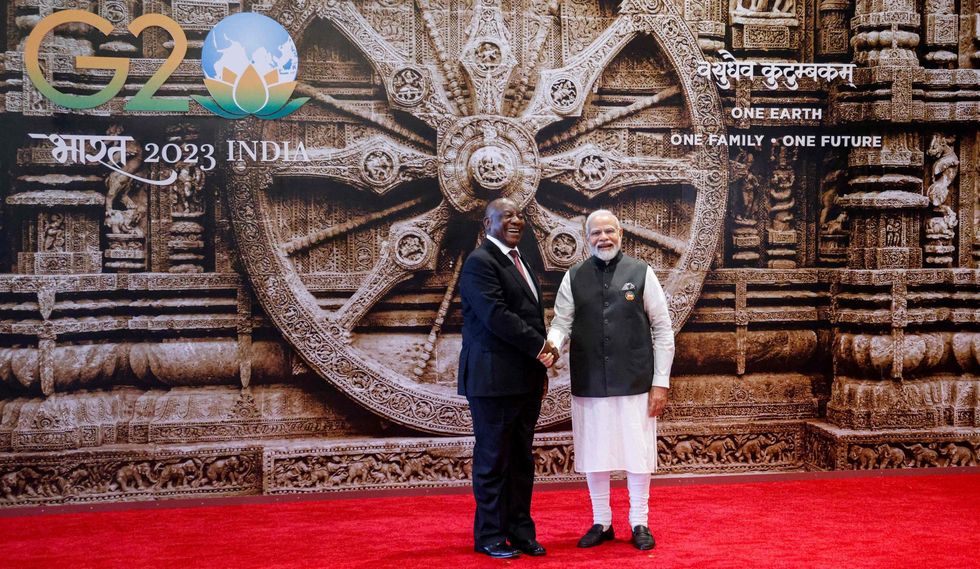
Uma Purushothaman, assistant professor of international relations at Central University of Kerala and former fellow at Observer Research Foundation (ORF), told Eastern Eye that India's contribution to making the AU a member of the G20 is the lasting legacy of its presidency.
“It will earn India a lot of goodwill in the African continent and build on its existing soft power there. It also enhances India's credentials as a leader of the Global South,” said Purushothaman.
“As far as the AU is concerned, their admission gives them a platform to promote their interests and air their grievances and undoes the grave injustice of keeping out such a large section of the global population out of the world's premium economic forum.”
This strategic move takes on heightened importance as President Xi Jinping of China conspicuously abstained from the New Delhi meeting.
Over the past few decades, China has aggressively sought to expand its economic influence in Africa.
According to data from the Afrobarometer survey across 36 African countries, 23 per cent of respondents perceive China as the most influential foreign power in their respective nations, closely trailing behind "the former colonial power" (28 per cent) and slightly surpassing the United States (22 per cent).
“Xi snubbed India by not attending the G20 summit. But the successful conduct & the carefully drafted Leaders’ Declaration have now pushed Xi into a corner. Snub is returned to Beijing with interest!,” wrote Happymon Jacob, professor of foreign policy at Jawaharlal Nehru University, New Delhi, on X, formerly Twitter.
On the sidelines of the summit, India and other major countries have resolved to set up a new network of railways and shipping routes a multinational rail and ports deal linking the Middle East and South Asia called India-Middle East-Europe Economic Corridor, or IMEC, which experts say is a push to counter China’s Belt and Road initiative (BRI) to build a global infrastructure.
IMEC’s primary objective is to connect Middle East nations through an extensive railway system and integrate them with India through strategically located ports. This infrastructure development is poised to facilitate the smoother flow of energy resources and trade from the Gulf region to Europe. As a result, shipping times, costs, and fuel consumption are expected to significantly decrease, benefitting economies along the corridor.
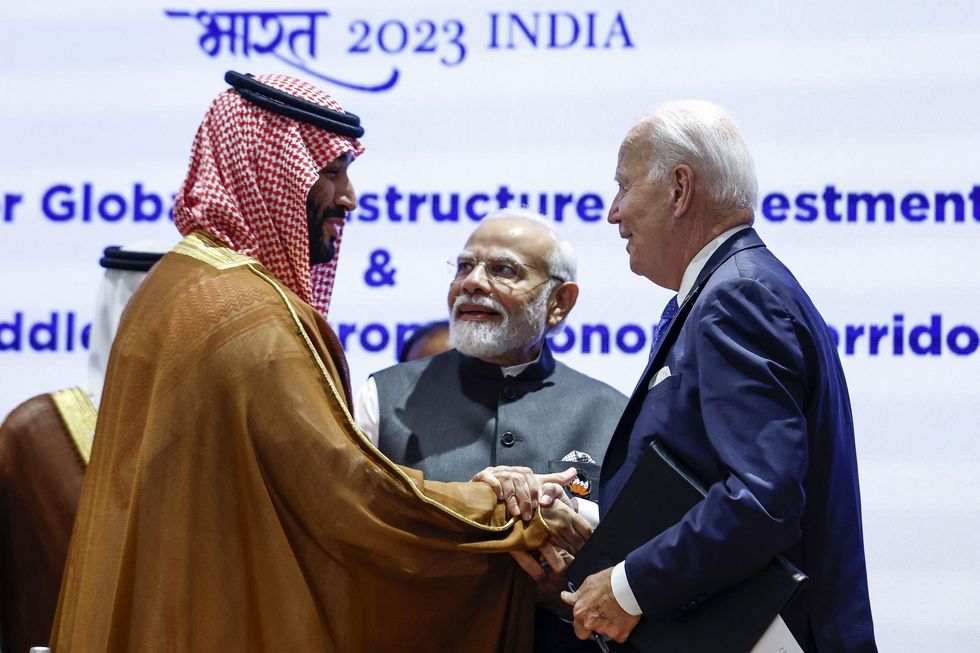
US officials, as reported by Reuters, have underscored the importance of this project in enhancing regional connectivity and economic cooperation. Furthermore, India is set to play a pivotal role in building the railway infrastructure within the Middle East countries as part of the IMEC initiative.
The implications of IMEC extend beyond infrastructure development. This endeavour is anticipated to open up new avenues for cooperation between India and the Middle East nations, strengthening diplomatic ties and further establishing India as a global infrastructure powerhouse, the Economic Times said.
US president Joe Biden said the IMEC is a ‘real big deal’ and wrote on X, formerly Twitter, that it “is a game-changing regional investment.”
Khalid bin Abdulaziz Al-Falih, the investment minister of Saudi Arabia, a country which is an important member of BRI, has said that IMEC "is going to be more significant and relevant" than the Silk Route and Spice Route.
However, even as the leaders showed their enthusiasm about the initiative, some observers have pointed to the huge costs the project could incur and the long term returns of the corridor.
“The extended planning phase of infrastructure projects, combined with high private investor expectations, can inflate costs and undermine financial feasibility. Hence, ensuring consistent funding for Build-Back-Better World (B3W) projects presents challenges, as recipient nations may face uncertainties in securing commitments from international donors or private investors. The resultant delays in fund allocation can lead to project delays, cost overruns, and reduced viability,” wrote Ram Singh, professor of Indian Institute of Foreign Trade, New Delhi, in the Hindu Business Line newspaper.
Purushothaman says it has to be seen what IMEC could achieve in the long term as similar projects floated earlier have not reaped desired benefits.
“We have seen big announcements in the past like the (B3W) and the EU Gateway, which have achieved little. India also has its own multimodal transport corridor, the International North-South Transport Corridor (INSTC). As India is still not a large exporter, it remains to be seen if the volume of goods through this new corridor will make it financially viable,” she said.
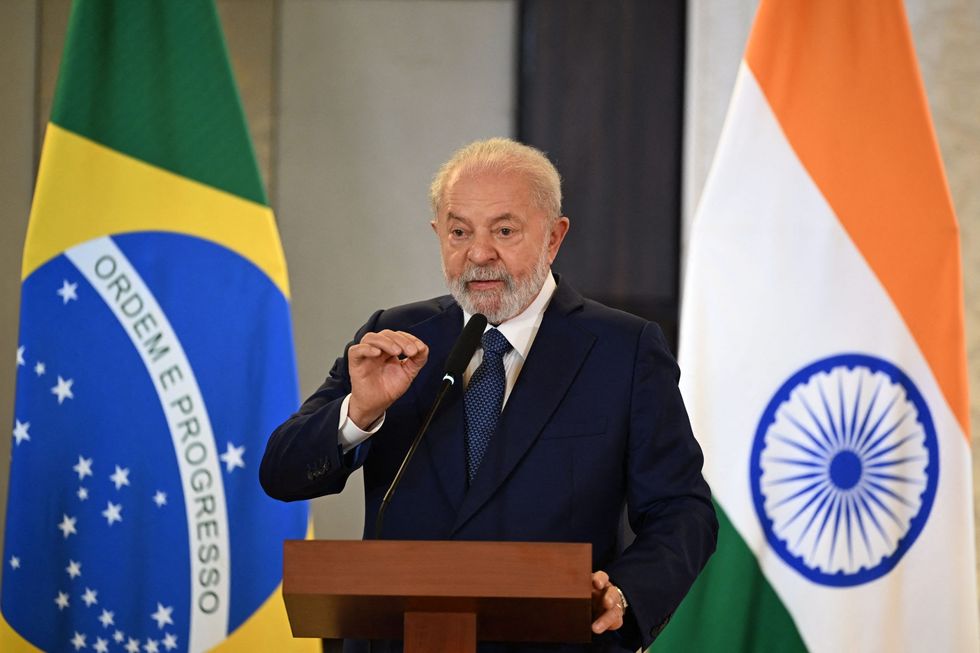
The G20 summit declaration of 2023 marked a notable departure from the stance adopted at the Bali summit concerning the Ukraine conflict, aligning closely with India's position on the matter.
In contrast to the 2022 declaration, which explicitly condemned Russia for its "aggression against Ukraine," the New Delhi declaration omitted any specific reference to Russia. Instead, it emphasised a universal principle that all states should refrain from employing threats or force to pursue territorial acquisition.
Responding to the questions, India’s external affairs minister S Jaishankar said G20 is not a platform to resolve geopolitical and security issues.
"Regarding the change in language on the Russia-Ukraine conflict from the Bali Declaration - Bali was Bali, New Delhi is Delhi. Many things have happened since the Bali Declaration," he added.
Amid accolades from leaders such as British prime minister Rishi Sunak, who praised Modi for presiding over a “historic G20”, and Brazilian president Luiz Inacio Lula da Silva (who is set to host the next summit in 2024) commending the “exceptional” organisation of the New Delhi summit, experts believe that the event has significantly enhanced Modi's global standing.
“Modi has positioned himself as a global statesman. A big and successful show at the G20 would add to that image,” Jacob had told the BBC before the summit.
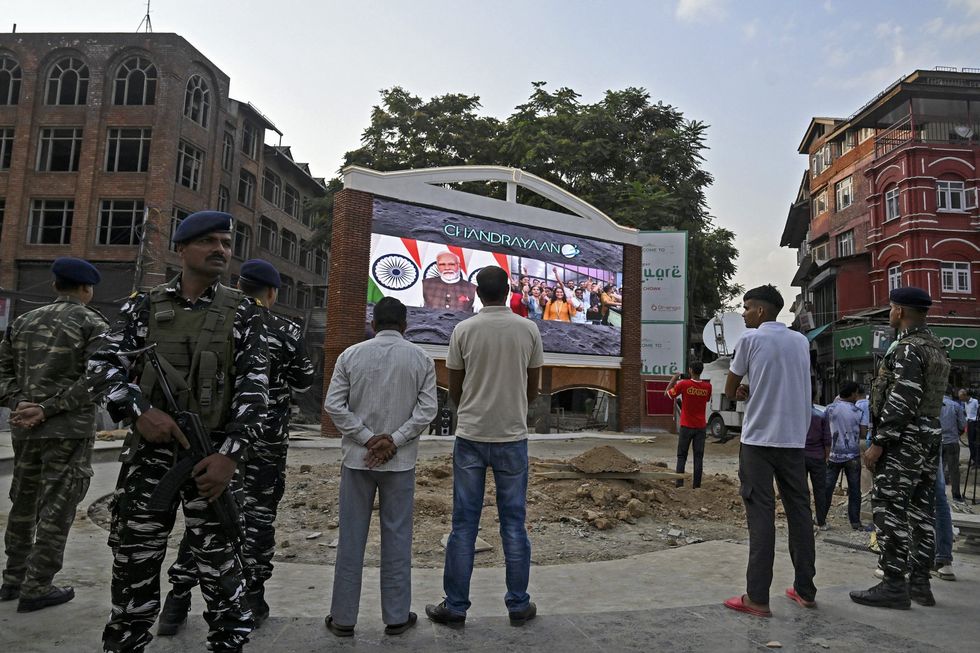
The prime minister and the Bharatiya Janata Party (BJP) are keen to leverage the success of the summit and the recent historic Chandrayaan-3 moon landing mission, which occurred last month, as they build their case for maintaining their leadership in New Delhi, especially with the upcoming general elections expected next year.
In contrast to the relatively divided opposition in 2019, the 2024 elections pose a more formidable challenge for the prime minister and his party. Opposition parties have united to form a coalition known as 'INDIA' to contend with the ruling party.
The BJP has already asserted that India's rise on the global political stage owes much to Modi's efforts, positioning the country as a major player in international affairs.
“The flurry of events, be it the BRICS Summit or G20 or even ASEAN, have brought India, its economy and culture to the centre stage. The G20 events that have been held across states have showcased the country’s diversity in a manner like never before,” said Nalin Kohli, the spokesperson of the ruling party.
